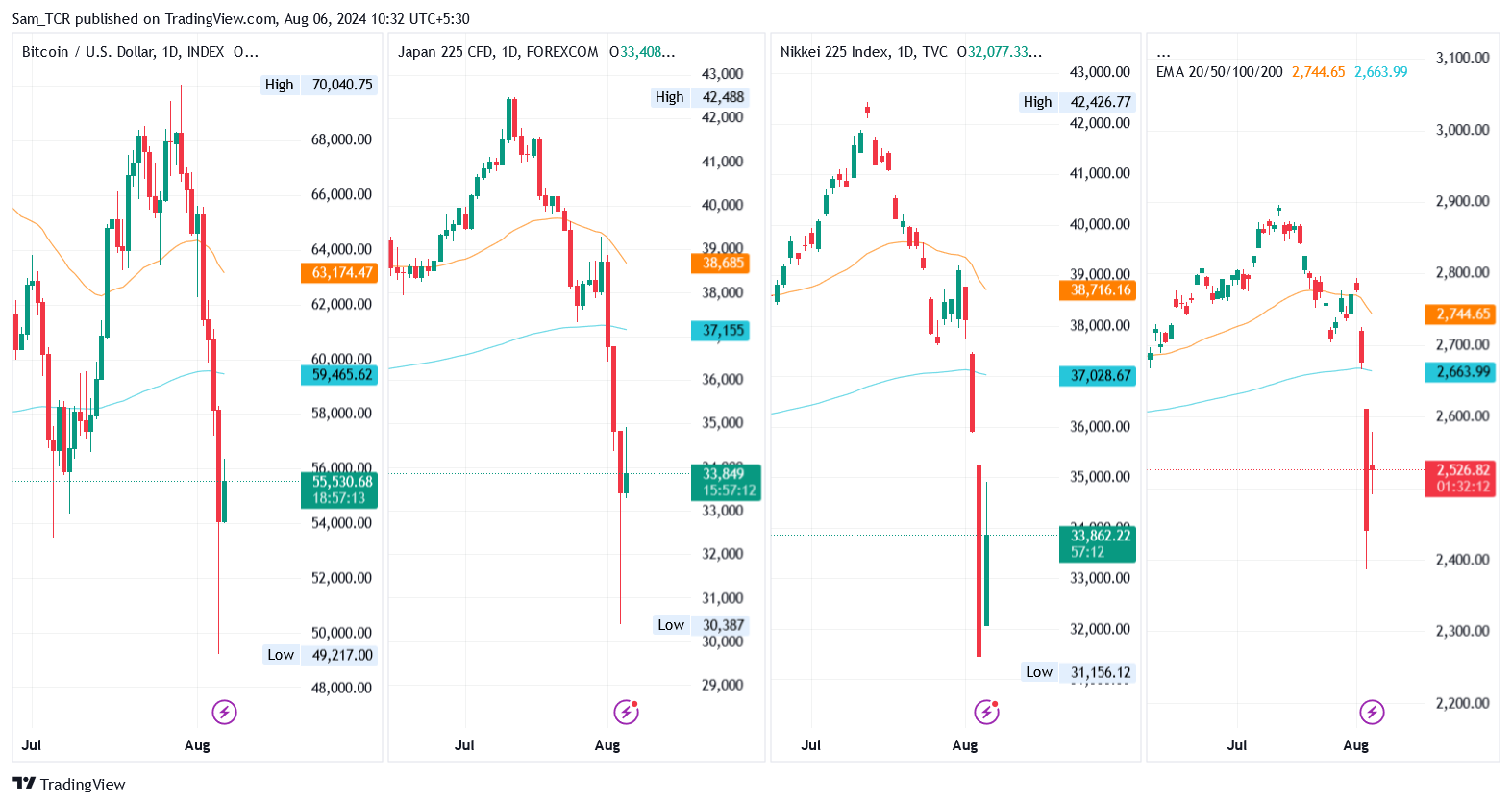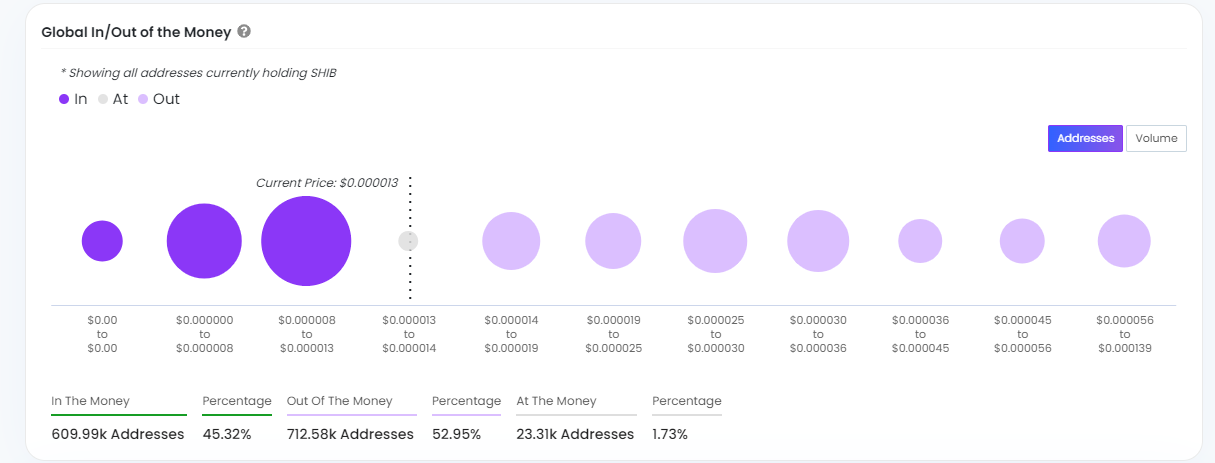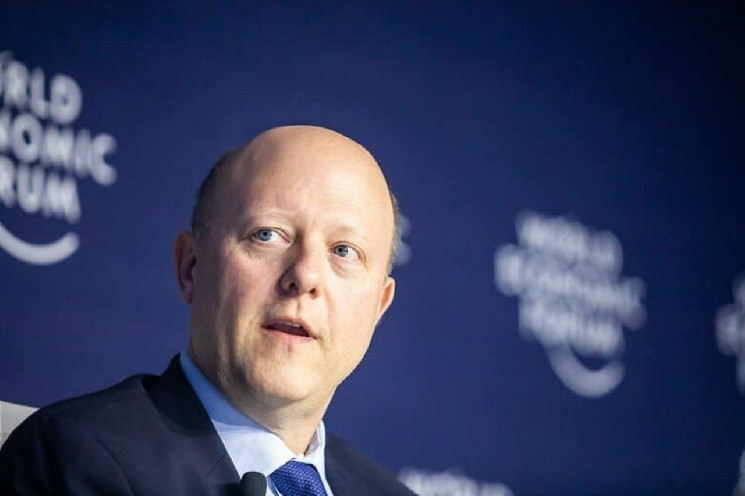Today, enjoy the Empire newsletter on Blockworks.co. Tomorrow, get the news delivered directly to your inbox. Subscribe to the Empire newsletter.
Happy Friday! This is our second edition of the new Friday format.
We’re digging into stablecoins today, looking into last month’s activity, and we also heard from Circle CEO Jeremy Allaire.
We hope you have a relaxing weekend — but don’t miss our poll at the end before you start enjoying the last days of summer.
— Katherine Ross & David Canellis
Up, up, up
Earlier this week, I briefly mentioned that the total stablecoin market cap was carving out fresh all-time highs.
CCData noted that the nearly 3% jump over August marks the “highest end of month market capitalization” notched since April 2022 (oh, those were the days…).

It’s not necessarily all good news, though, as there were some hiccups.
“Stablecoin trading volume fell 14.2% to $848 [billion] in August (as of the 23rd). [Overall] trading volumes are on track for a second consecutive monthly increase, driven by volatile digital asset prices following the unwinding of the Japanese Yen carry trade and recovery in TradFi markets,” CCData analysts wrote.

Remember how I previously mentioned my chat with Polygon’s Colin Butler? Stablecoins actually came up a few times.
At one point, I asked Butler which types of crypto offerings could have the most market value, given how it’s no secret that stablecoins are viewed as fairly successful.
Butler went on to opine: “What we have now is the money market fund onchain, which is not obviously equal to a stablecoin, right? But it could serve as a settlement token in some use cases. I don’t think anyone can tell how deeply that penetrates into finance.”
“I just don’t think we’re going to know until people really try it. And it could go all the way. It could, overlap [with or] flip tether at some point,” he continued. “Or there could be structural challenges with it that, for whatever reason, don’t allow it to have that kind of product market fit. I think you’re gonna know pretty quickly, in the next 12 months.”
What’s also interesting is the surge seen in PayPal’s stablecoin. CCData found that, over the last month, $PYUSD’s market cap jumped 56%.
$PYUSD currently sits just below a $1 billion market cap, according to DeFiLlama data, after hitting said milestone earlier this month. It’s the sixth largest stablecoin by market cap.

“The recent spike in demand is likely due to attractive incentives offered on decentralized lending protocols for $PYUSD, with dapps including Drift Protocol offering up to 18% APR in yield. On-chain data shows that over 50% of $PYUSD is serving as collateral on lending protocols and quote pairs on DEXs,” CCData analysts wrote.
Our colleague and Lightspeed newsletter writer Jack Kubinec noted that PayPal has to be eating some of the cost when it comes to onramping. Perhaps that speaks to some of the success we’re seeing in the data.
But PayPal’s not the only stablecoin I want to cover this morning. I also want to touch on $USDC.
In August, $USDC’s market cap climbed 3% to roughly $34 billion. It gained a little more than tether — obviously the dominator when we talk about this sector — which saw an increase of 2.5% to a $117 billion market cap, keeping an easy lead on the rest of the market.
$USDC’s growth aside, the stablecoin remains one of my many focuses in part because Circle, its operator, is still trying to go public. In January, it confidentially filed for an IPO. Essentially, Circle filed a registration statement with the SEC under lock and seal. Meaning you and I can’t see it… yet.
And I, dear reader, can’t shake my Wall Street roots even when I desperately try. Admittedly, I’m itching to get my eyes on the S-1 to gleam some details about Circle ahead of its public debut.
Unfortunately, we may have a while yet to wait. Circle didn’t return a request for comment on where they’re at in the process. In an Empire podcast interview (which we’ll get to in a moment) CEO Jeremy Allaire just said that the company remains “very focused on becoming a global US listed publicly traded company.”
“A publicly traded company in the US will increase the trust, increase the transparency [and] will be holding us to the highest governance standards, ethical standards and forms of public accountability that can exist for any corporation in the world, and that’s valuable,” Allaire said further.
But while we remain unclear on Circle’s timeline, what we do know is that the stablecoin segment continues to grow, even as parts of the market seem to stutter.
— Katherine Ross
IYKYK
Speaking of Circle…
The Empire episode this week featured Jason Yanowitz, Santiago Santos and Allaire, who covered far more subjects than just the IPO.
Allaire gave listeners a read on his hopes and dreams (read: 5-10 year vision) for Circle — and stablecoins in general.
“The really exciting thing is actually what happens when machines can intermediate value exchange, where commercial relationships, commerce relationships, labor relationships, financial relationships can be codified,” Allaire explained. “And deployed on open, public, transparent, compute infrastructure, [also known as] public blockchains in the form of smart contracts.”
To Allaire, it’s the “fundamental” breakthrough of blockchains.
And now you know.

No question there’s room for growth in RWAs.
Counting stablecoins, the total value of the segment is currently almost $182.28 billion — only $5 billion short of its lifetime peak set just before Terra blew up in May 2022.
Circle today carves out almost 20% of the total, while Tether still has more than half.
I’d be on the lookout for tokenized real estate to show up on the chart above over the coming years.
There’s a few projects slowly gathering speed in that corner of RWAs — but overall they’re still too small to really appear prominently. Perhaps more so after a potential boost from whatever the Trump family is cooking up.
— David Canellis & Katherine Ross
 blockworks.co
blockworks.co
